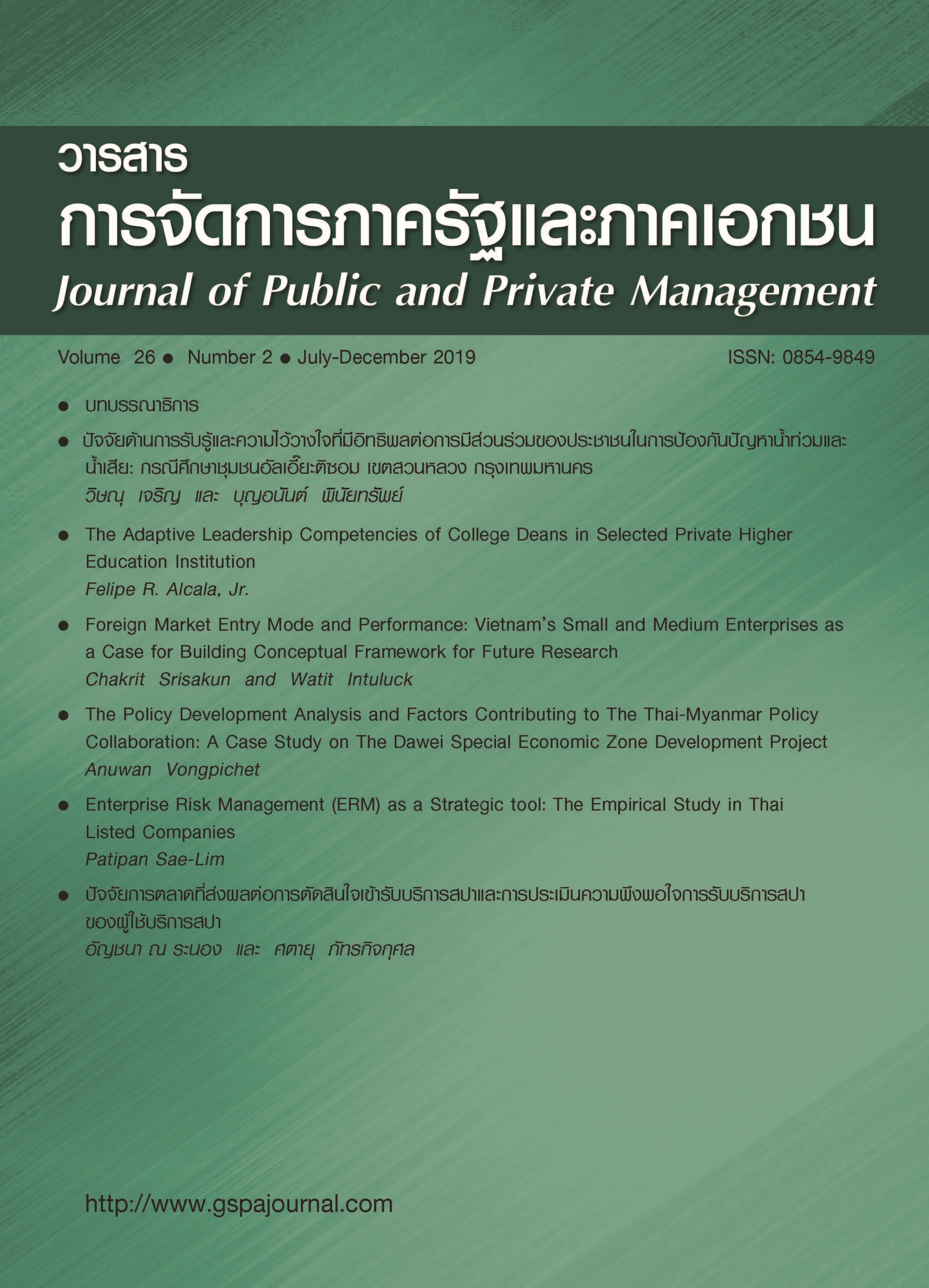The Policy Development Analysis and Factors Contributing to the Thai- Myanmar Policy Collaboration: A Case Study on the Dawei Special Economic Zone Development Project
Abstract
This paper aims to study the progress of the policy development of the Dawei SEZ project during 2008 to 2016 in a systematic manner and tries to identify the key drivers for the inter-country policy collaboration. The research is academically valuable by filling the gap between theory and practice on policy development. Also, it would help policymakers in the Thai government to understand the situations and critical elements that help support the collaboration over the Dawei SEZ project and similar ones in the future. A qualitative case study is applied with an adoption of action research as a guiding methodology. With the purpose of unfolding complexity of the phenomenon, primarily takes different qualitative data collecting techniques - documentary research, in-depth interview, and participatory observation.
The paper explained the policy development in two periods, both of which were situated in the steps of policy formulation and partial implementation. The first period of policy development took place between 2008 and 2011 highlighting the policy initiative driven by a strong political decision whereas the second period between 2012 and 2016 focused on the redesign of institutional framework for collaboration.
The findings confirmed the explanatory power of all parameters engaged in the model of collaborative governance by Ansell and Gash (2008); namely, starting conditions, institutional design, collaborative process, facilitative leadership. Finally, three additional factors emerged as enablers explaining the existence of the Dawei SEZ policy collaboration between Myanmar and Thailand: a role of policy manager, cross-cultural complementary and regional cooperation force.
Downloads
Published
How to Cite
Issue
Section
License

This work is licensed under a Creative Commons Attribution-NonCommercial-NoDerivatives 4.0 International License.



